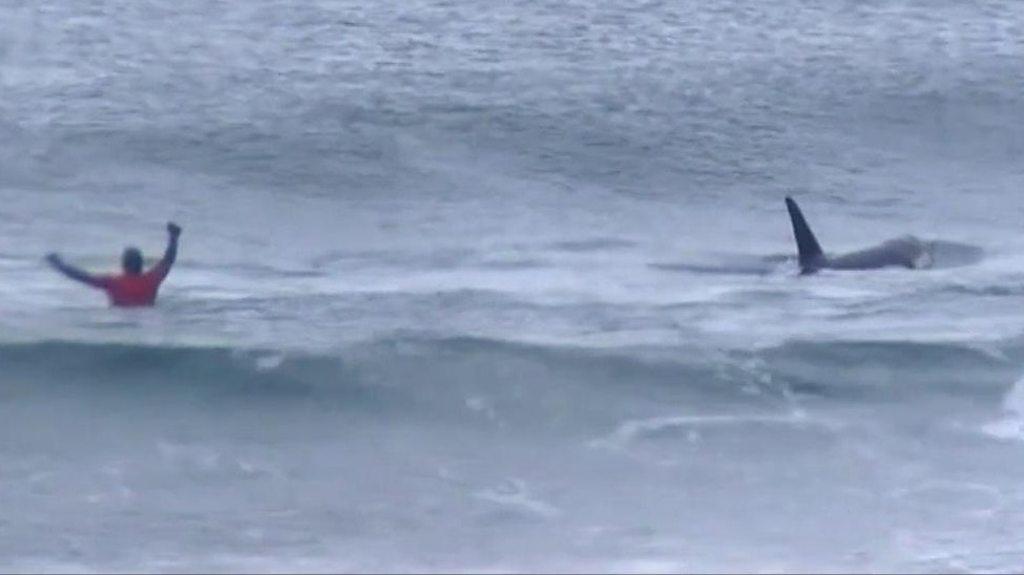Kendal lecturer hopes Arctic whale data will help protect species
- Published
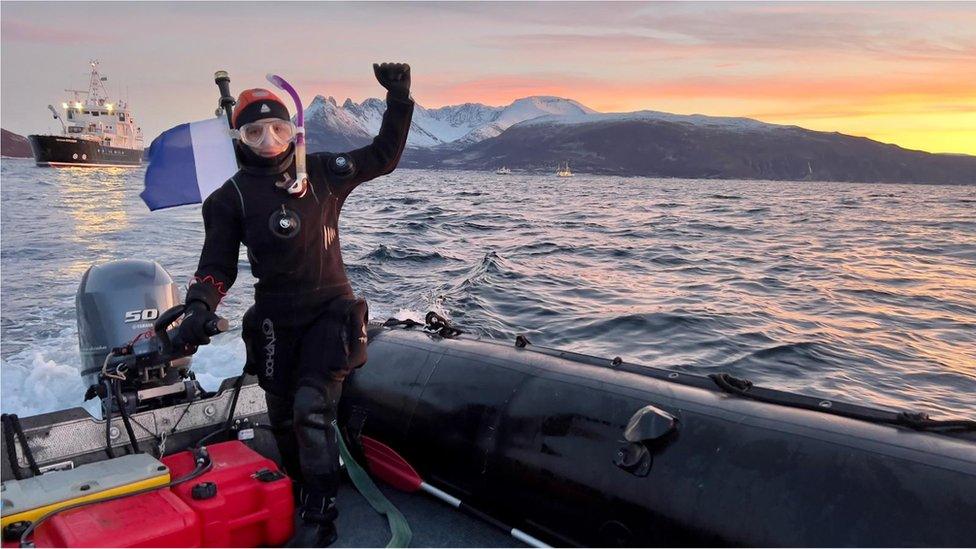
College lecturer Sarah Neill said she went into the sea every day during the expedition to gather data
A college lecturer who studied killer whales in the Arctic Circle says findings from the trip could be used to regulate eco-tourism in Norway.
Marine biologist Sarah Neill, 39, who works at Kendal College, was part of an all-woman expedition studying how the mammals interact with human snorkelers.
Norway is the only country where people can legally swim with the whales.
Ms Neill, who co-led the mission, said she did not want to deny anyone the experience but more rules were needed.
The Sea Women Expedition team brought together worldwide specialists - including scientists, photographers, lawyers and historians - during the winter herring run in Norway's Arctic fjords, 217 miles (350km) north of the Arctic Circle.
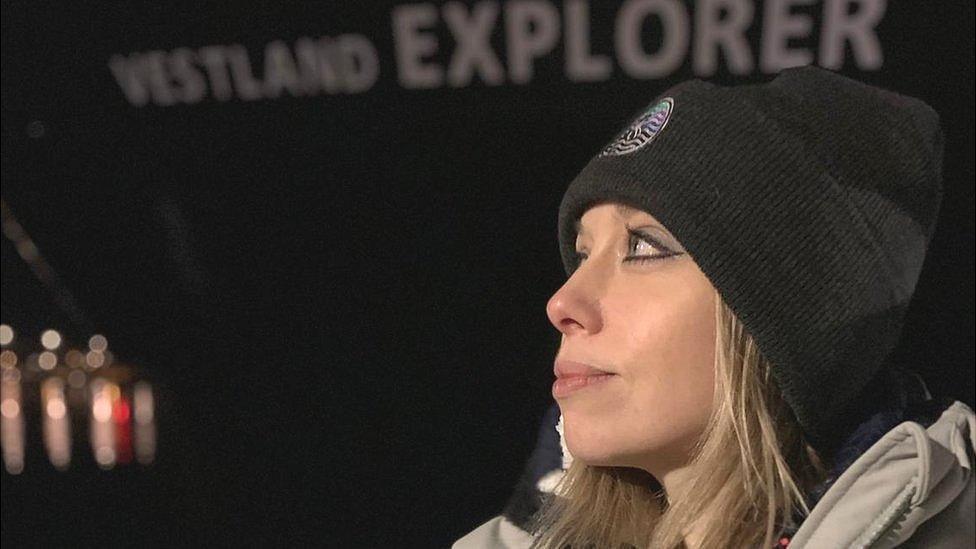
Ms Neill co-led the Sea Women Expedition to the Arctic Circle
Ms Neill, from Grange-under-Sands, Cumbria, went in the sea every day during the trip to gather data.
She faced freezing temperatures but said the water "warmed me up" compared to the air temperatures on the boat.
"I had been warned that I could go and not be able to see any whales to collect the data," she said.
"But I was dropping into the ocean about 12 times a day for the best part of a month and it was non-stop sightings."
She added the impact of snorkelling on free-ranging killer whales was not studied widely enough.
"My data will be used to try to catalogue more interactive behaviours towards humans and can even introduce regulations to tourism ventures - like in north Norway where there are no regulations."
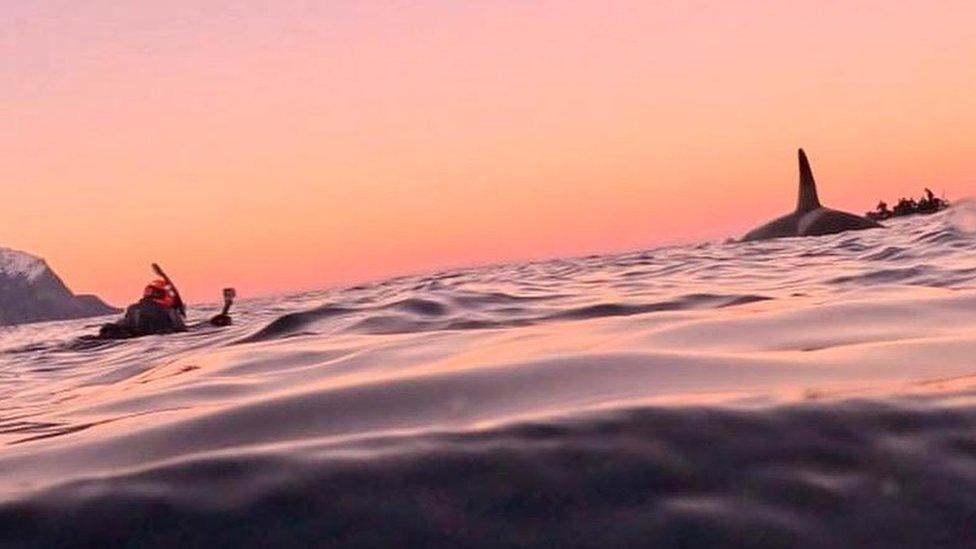
The expedition team gathered hours of data on killer whales
She described the whale encounters as "iconic" and said she would not want to deny anyone the experience, but believed regulations were needed.
She said the encounters with the wild animals needed to be monitored and regulated to reduce any potentially detrimental effects to both the animals and tourists, and for ecotourism ventures to remain sustainable.
"I remember seeing the tall fins of the killer whales for the first time when they faded out of the murky background of the Polar night and floated into my vision," she said.
"It was unbelievable how close they came."

Follow BBC North East & Cumbria on Twitter, external, Facebook, external and Instagram, external. Send your story ideas to northeastandcumbria@bbc.co.uk, external.
- Published5 August 2021
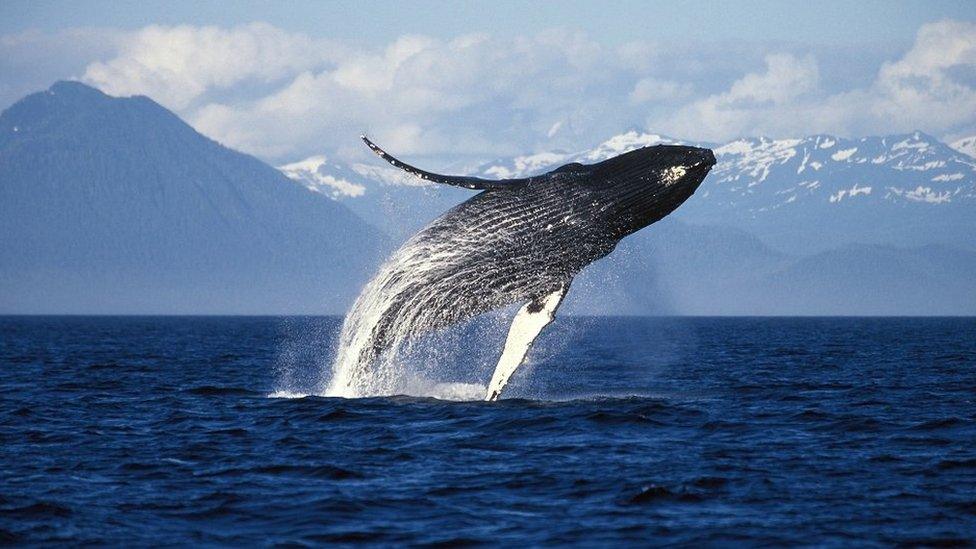
- Published23 July 2021
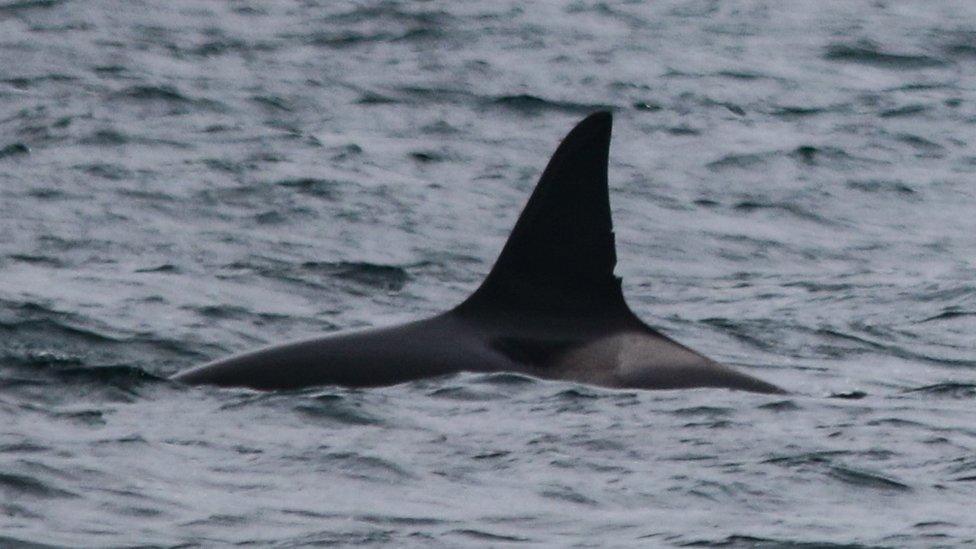
- Published24 September 2017
